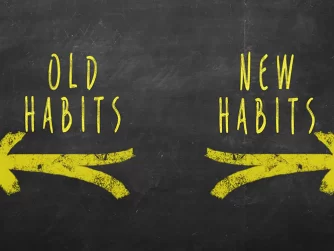Let’s Talk About Gut Health (It’s More Important Than You Think)
As a certified personal trainer and nutritionist, I get asked all the time: “Do I need to take probiotics?” And it’s a great question—because more often than not, people don’t realize how much their gut is affecting their mood, energy, immune system, and even how their body handles food.
If you’re feeling bloated, sluggish, sick more often, or struggling with digestion—you might not need a new workout plan… you might need better gut health.
Let’s break it all down in simple terms: what probiotics are, what they do, the signs that you may need them, and what you can do to naturally support your gut.
What Are Probiotics?
Probiotics are live microorganisms—mainly beneficial bacteria and yeast—that live in your gut and help keep things running smoothly. You can think of them like the “good guys” in your digestive system.
They help with:
- Breaking down food
- Absorbing nutrients
- Fighting off harmful bacteria
- Supporting immune function
- Making important vitamins (like B12 and K2)
When your probiotic levels are balanced, your gut feels good, your immune system works better, and your energy stays more stable. But when they’re out of balance, it can lead to digestive issues, inflammation, and even mood problems.
Where Do Probiotics Come From?
Probiotics naturally live in your gut, but you can also get them from:
- Fermented foods like yogurt, kefir, sauerkraut, kimchi, miso, and kombucha
- Probiotic supplements, which come in capsules, powders, and even liquid drops
Unfortunately, modern life often wipes out our good bacteria. Between processed foods, stress, antibiotics, pesticides, and lack of fiber, many of us are walking around with depleted gut flora.
Signs You Might Need Probiotics
You don’t always need a stool test or a complicated diagnosis to know your gut is off. Here are some common signs your body may be asking for more good bacteria:
1. Digestive Troubles
- Bloating, gas, constipation, or diarrhea
- Heartburn or indigestion
- Feeling “heavy” or uncomfortable after eating
A healthy gut should process food smoothly. If your digestion feels off more days than not, probiotics might help reset the balance.
2. You’ve Taken Antibiotics Recently
Antibiotics kill bad bacteria—but they also wipe out the good ones. Even a single round can disrupt your gut microbiome for weeks, if not longer. Taking probiotics during and after antibiotic use can help replenish your system.
3. Frequent Illness or Slow Recovery
About 70% of your immune system is located in your gut. If you catch colds easily, or it takes you a long time to bounce back from sickness, your gut might be compromised.
4. Skin Problems
Eczema, acne, rosacea, or even psoriasis may be linked to gut imbalance. There’s a strong connection between the gut and skin known as the gut-skin axis.
5. Brain Fog or Mood Swings
Yes, your gut and brain talk to each other. An imbalance in gut bacteria can affect the production of neurotransmitters like serotonin, which impacts mood, focus, and stress levels.
6. Sugar Cravings and Bad Breath
A gut that’s out of balance often has an overgrowth of yeast or harmful bacteria that thrive on sugar. If you’re constantly craving sweets or battling bad breath, it could be a red flag.
7. New or Worsening Food Sensitivities
If you’ve recently become more sensitive to dairy, gluten, or high-fiber foods, your gut lining might be inflamed or your enzyme production may be off—both of which probiotics can help support.
How Do I Replenish My Probiotics?
If you’ve checked off a few signs above, don’t worry—it’s not too late to turn things around. Here’s how to start replenishing your good bacteria:
1. Eat More Fermented Foods
Try adding one or two fermented foods to your daily routine. For example:
- Greek yogurt with live cultures in your smoothie
- Sauerkraut on a salad or wrap
- Miso broth as a snack
- A small glass of kefir in the morning
These are natural sources of probiotics and easy to include in your diet.
2. Consider a High-Quality Supplement
A good probiotic supplement can be a powerful tool—especially after antibiotics, during times of stress, or if you don’t regularly eat fermented foods.
Look for:
- 10 to 30 billion CFUs (colony forming units)
- Multiple strains, including Lactobacillus and Bifidobacterium
- Shelf-stable or refrigerated brands (depending on the formula)
- Third-party tested and free from fillers or binders
Tip: Take it with food to help survival through the stomach acid.
3. Feed the Good Bacteria with Prebiotics
Probiotics need food to thrive. Prebiotics are special plant fibers that feed the good bacteria in your gut.
Foods high in prebiotics include:
- Garlic
- Onions
- Leeks
- Asparagus
- Bananas
- Oats
- Apples
A combination of probiotics and prebiotics is called a synbiotic—a great strategy for long-term gut health.
Do You Need Probiotics Forever?
Not necessarily. If you’re eating a fiber-rich, whole food diet and regularly consuming fermented foods, your gut can often maintain its balance naturally.
But during times of stress, travel, antibiotic use, illness, or poor diet, a good probiotic can act like a reset button.
Think of probiotics as a tool—not a crutch. Use them when your body needs support, and always listen to how you feel.
The Bottom Line: Listen to Your Gut
If your digestion is off, you’re getting sick often, your skin’s acting up, or you’re feeling more stressed and foggy than usual—your gut might be waving a red flag.
Probiotics aren’t magic pills, but they are a powerful way to support your body from the inside out. They’re safe, accessible, and can make a big difference when used wisely.
Start by tuning into your body, cleaning up your diet, and adding in fermented foods. If you’re still not feeling your best, a quality probiotic might be exactly what your gut needs.







